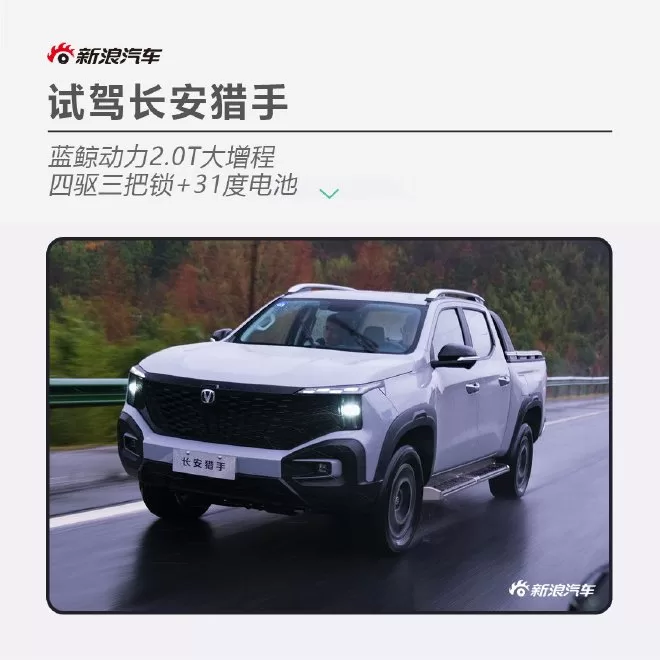
Commercial pickup trucks, primarily used for commercial purposes, face many unknowns in the transition to electrification. Unknown usage scenarios, unknown power performance advantages compared to gasoline and diesel, unknown regional energy supplementation infrastructure, and unknown vehicle operating costs. Forcing a pure electric transition like passenger cars is not very friendly to the work environment of pickup trucks, which are often used in remote mountainous areas as important vehicles for people’s material supply and production operations. The high frequency of use and short refueling time in these scenarios determine that pure electric is not the best choice for pickup trucks. So, what about a hybrid of gasoline and electric? Although PHEV plug-in hybrid pickup trucks have long range and can use both gasoline and electricity, the biggest problem comes from their complex structure and high frequency of use, which may lead to excessive wear and tear. For the vast majority of small and micro enterprises that buy pickup trucks to make money, ruggedness and low operating costs are the most basic vehicle needs.
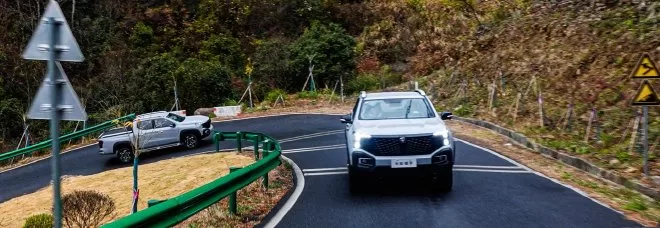
So, is the pickup truck okay for the extended range?
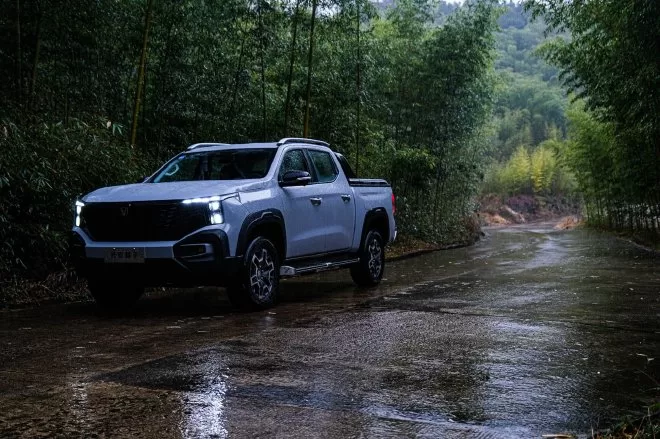
The Changan Hunter will launch two-wheel drive and four-wheel drive extended-range models, with the option of a long or short trunk. The standard version of the car we test drove has exterior dimensions of 5630mm in length, 1930mm in width, and 1885mm in height, with a wheelbase of 3430mm and a cargo bed size of 1860mm in length, 1595mm in width, and 500mm in height.
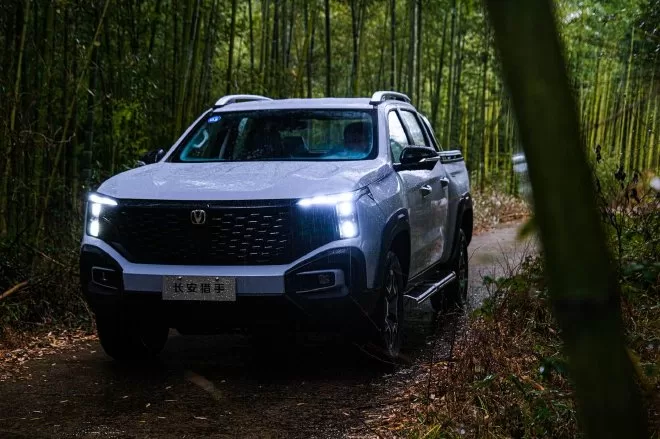
The new car has a very aggressive appearance, with a high degree of recognition. The front of the car adopts a shark-nose design, and the borderless front grille is very exaggerated, integrated with the headlights. Currently, there is only one version of this car, but a off-road or trendy version may be introduced later.
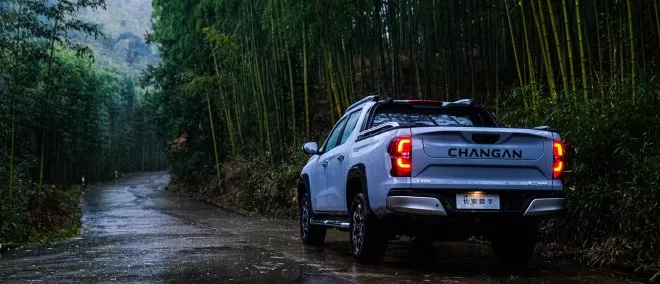
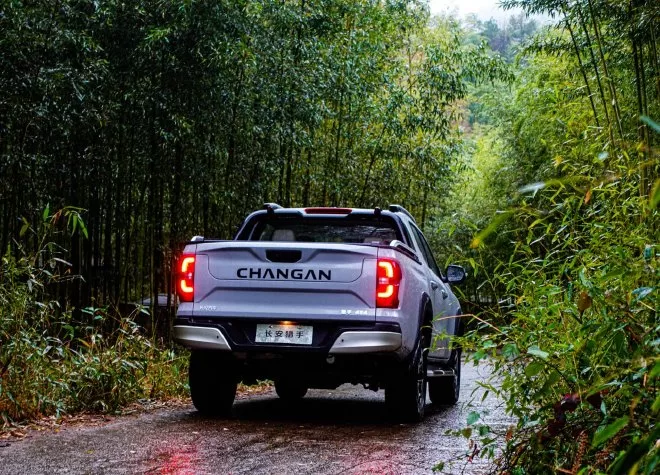
The test drive car is in mechagrey, which is also the flagship advertising color of the car, combined with high wheel arches and a high body posture, the overall style is very tough.
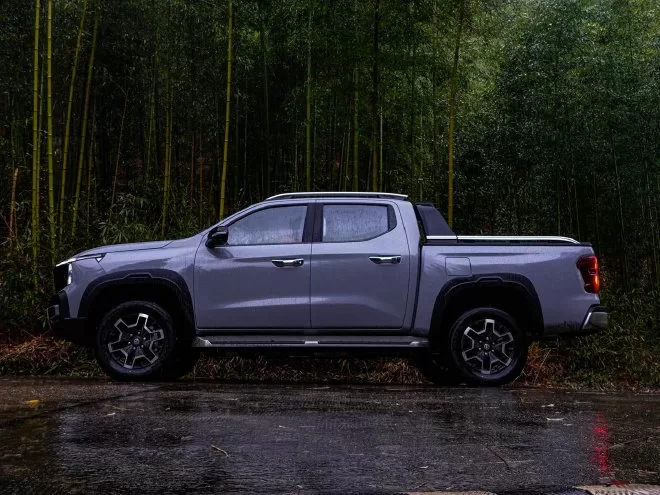
The Chang’an Hunter wheel group uses 6.5 low rolling resistance tires with thick sidewalls, combined with non-load-bearing body, to provide a more comfortable driving experience. The hub adopts a six-spoke black and silver symmetrical hub shape, which is moderate to reflect the sense of power.
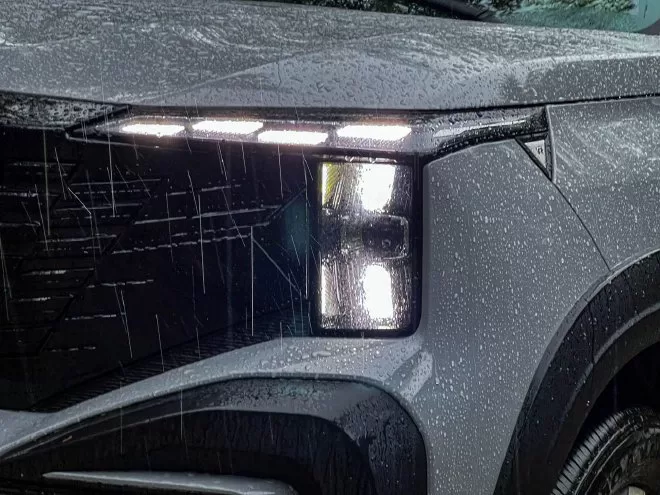
The front headlights have a sharp design and a strong brightness for both the LED daytime running lights and the low beam lights. The high layout of the lights also provides a wide and high visibility range at night.
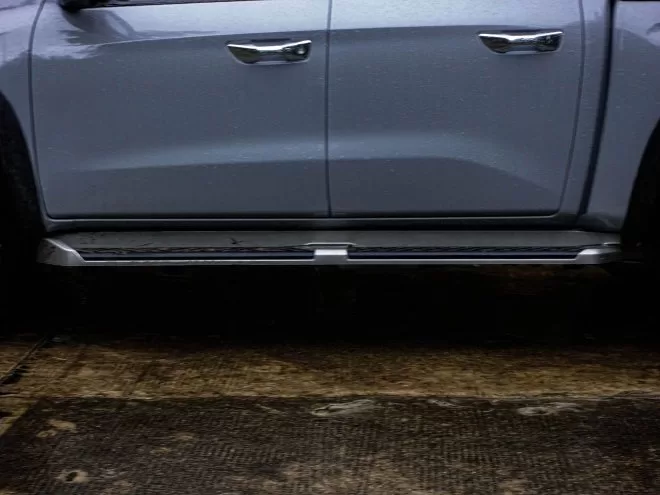
The car comes with fixed side steps, the door handles are very practical, not using a hidden design, and both the front and rear wheel arches have side protection.
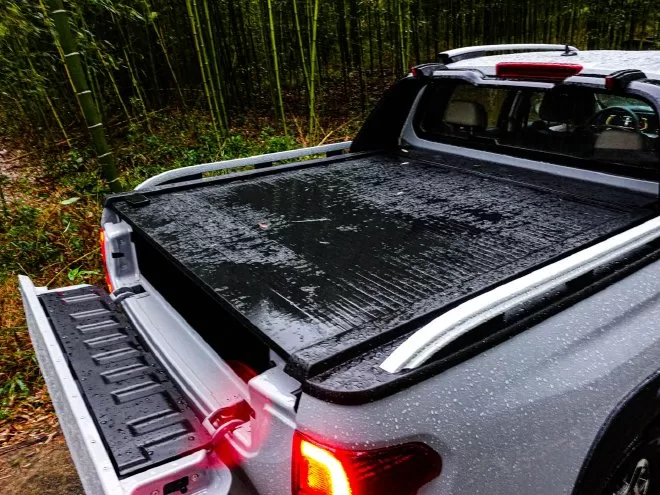
All models come with a trunk cover, which is ready for daily weather protection and can extend the natural wear and tear of the cargo area surface.
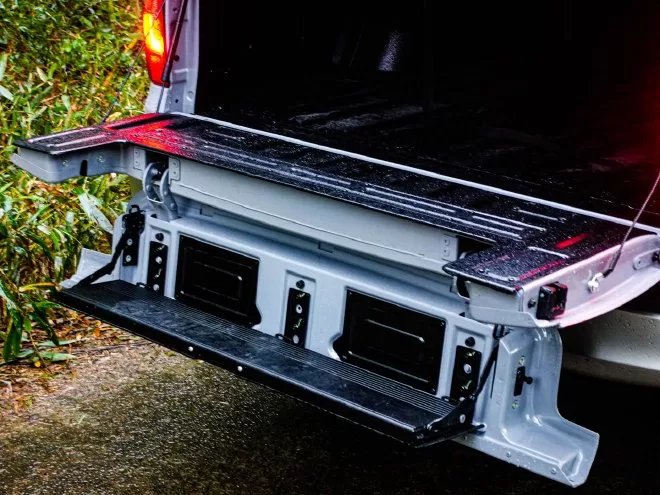
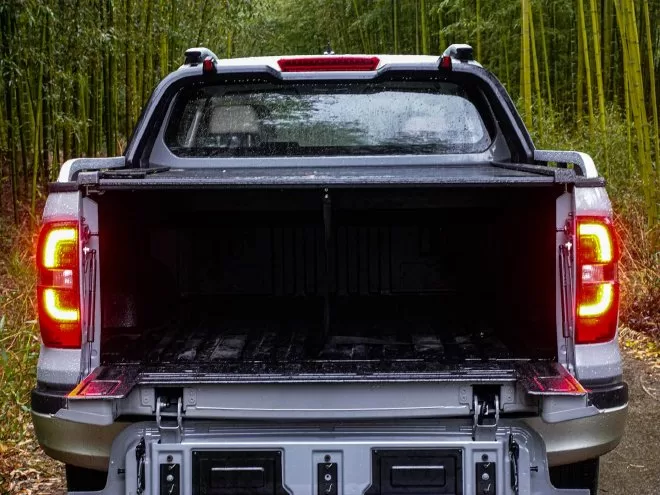
The tailgate is divided into two sections that open, with fold-out steps for easy access to the cargo bed. It is designed to be lightweight and easy for adults to open and close.
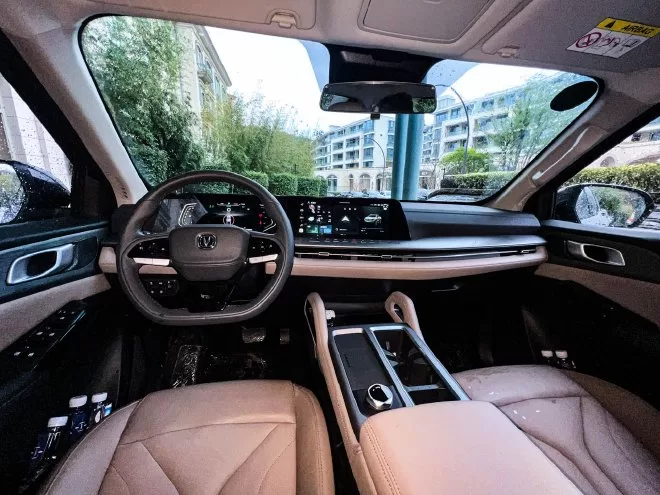
In terms of interior, the layout is very delicate, with dual LCD screens, and the instrument panel displays detailed vehicle information. The UI prepared for intelligent driving is available, but currently the car only has cruise continuation and lane departure warning functions.
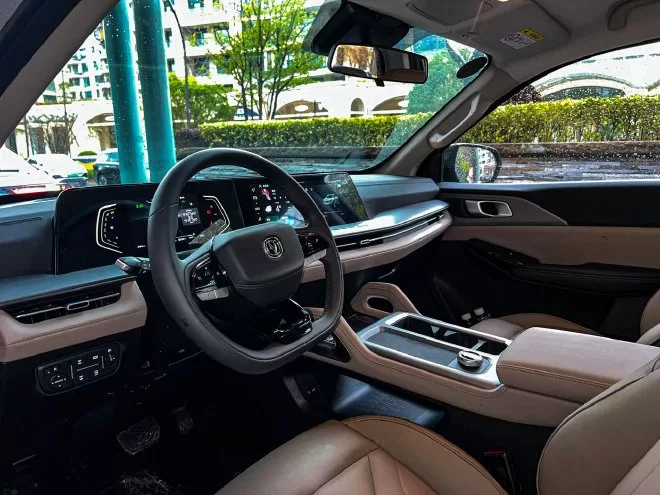
The overall style of the car interior is very high-tech and warm, with a choice of dark and light colors. The black color matches the exterior armor gray color. The center console and island are tilted towards the driver. The central screen includes multiple functions such as vehicle driving mode, air conditioning, media, and vehicle lights.
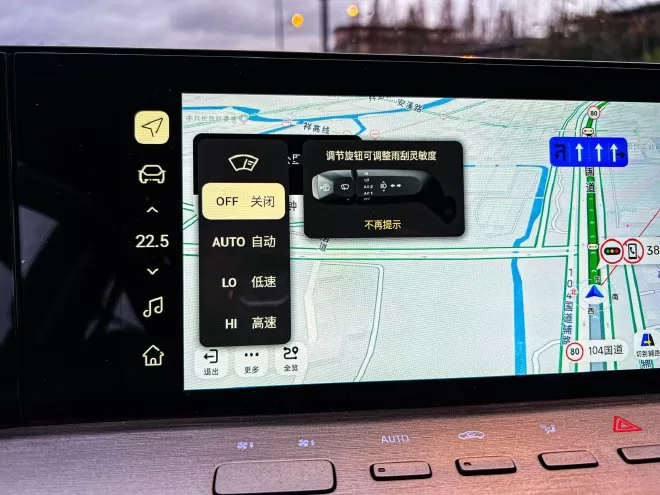
Especially the opening of the wipers can also be displayed on the central control screen, which may be preparing for full electronicization, but at present, the interior of the Changan Hunter integrates physical buttons and touch buttons very well.
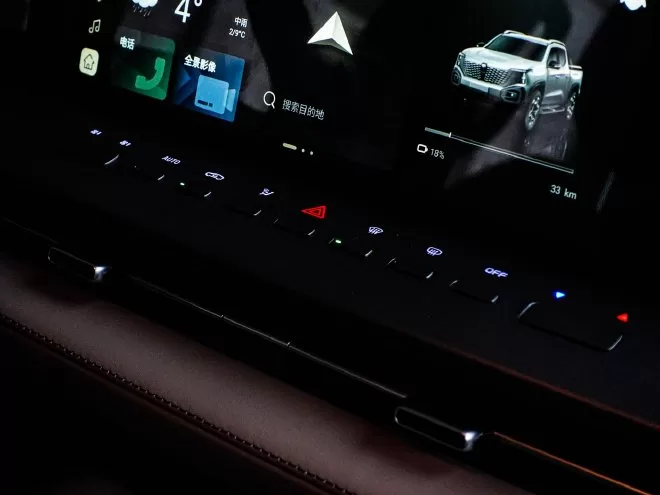
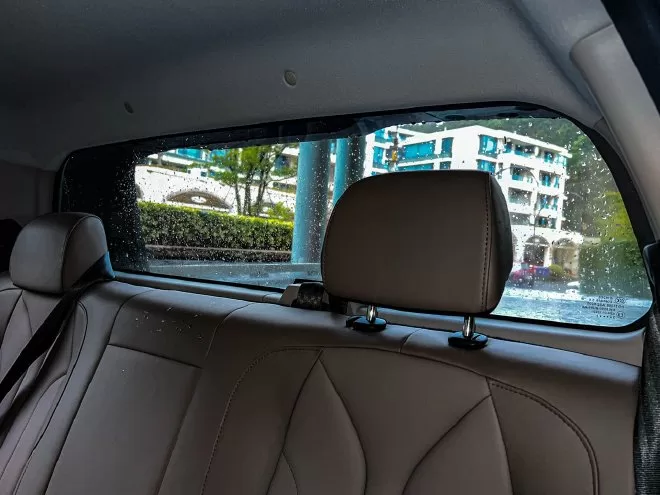
The air conditioning control buttons are located below the central control screen, making them easy to operate. However, the rear window does not have a defogging wire, which is regrettable. In the rainy weather of Hangzhou, combined with the enclosed space inside the car, fog quickly forms inside the car, affecting visibility. Relying solely on the air conditioning to clear the fog on the rear window is not very effective.
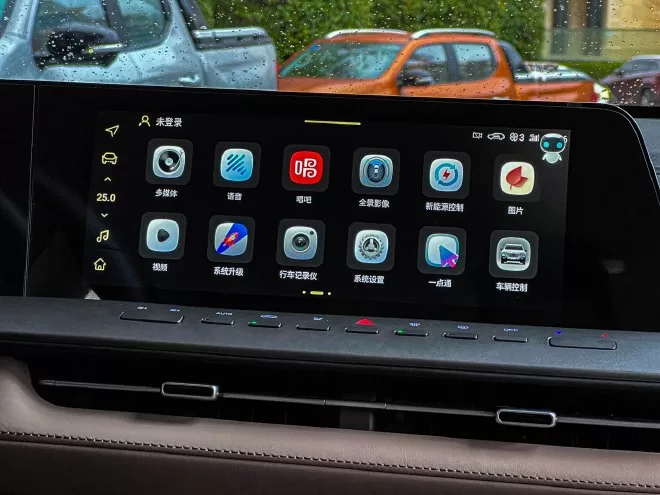
The central control screen is embedded with many practical APPs. Changan Hunter has been fully passenger-oriented in car entertainment and media.
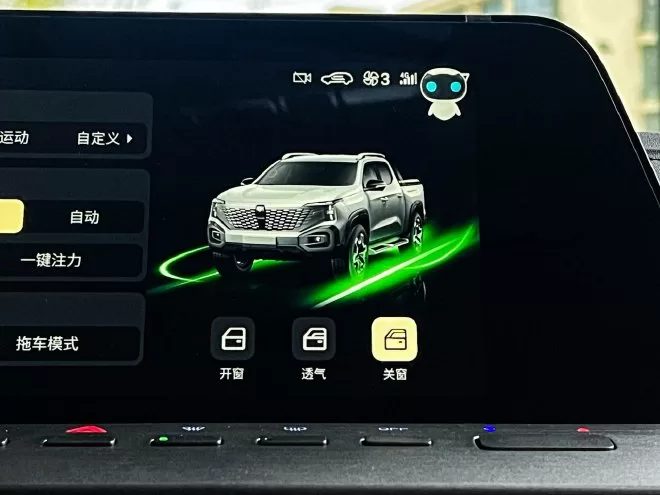
And in terms of voice interaction, for opening car windows, turning on the air conditioning, and continuous questioning, the car’s “Xiao An” can also perform actions like opening and closing windows, just like smart new energy vehicles.
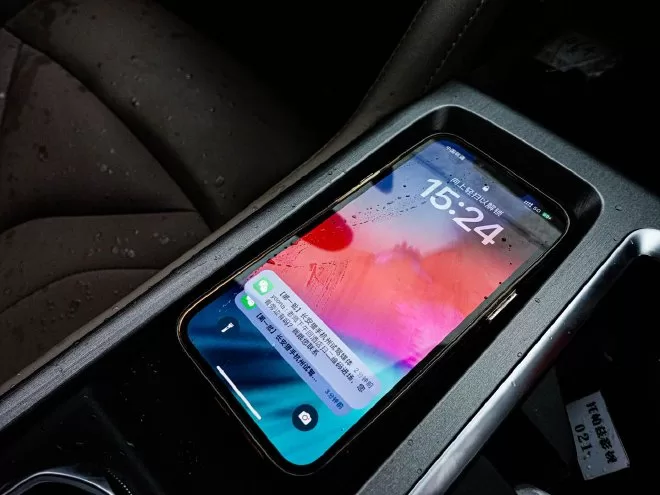
The central console in the car is also equipped with a wireless phone charging pad, which also has a cooling function underneath. The details are very thoughtful.
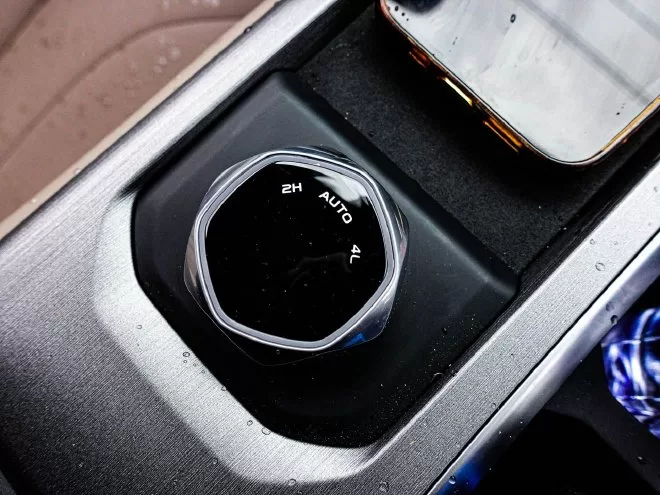
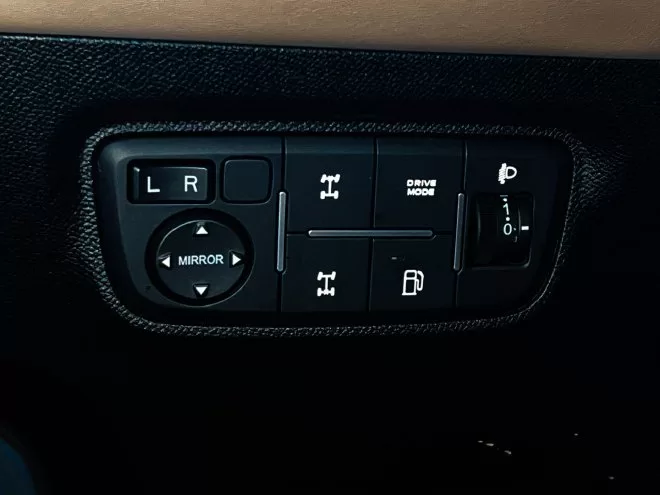
It should be noted that the 2L and 4H driving modes, differential lock selection, and driving mode buttons are located in different positions inside the vehicle. Although they can all be controlled through the screen, physical buttons are often more intuitive. If possible, gathering these driving and driving-related buttons together would provide a better driving experience.
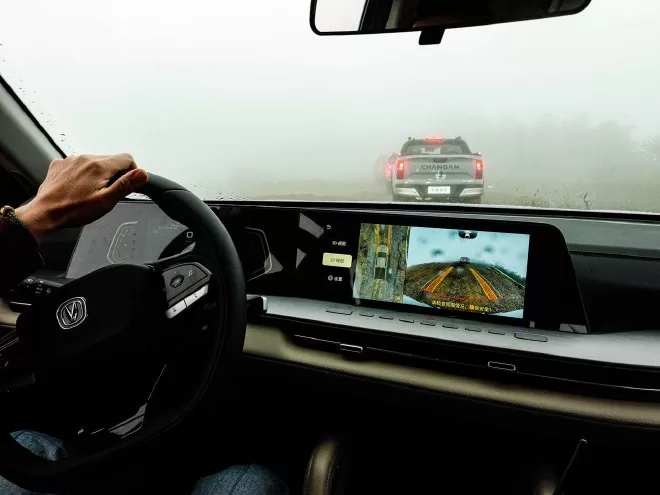
The Changan Hunter is equipped with a surround view and transparent car driving perspective. It automatically activates this function during the process of uphill and downhill in mountainous areas, and also activates the external cameras in the same direction when turning left or right to fill in blind spots.
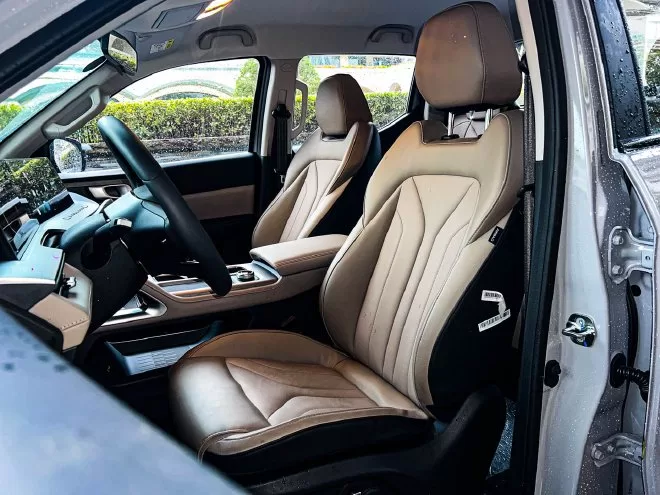
In terms of the feeling of riding in the space, the seating posture of the front row is slightly high, allowing a clear view of the front of the car and providing a strong sense of security.
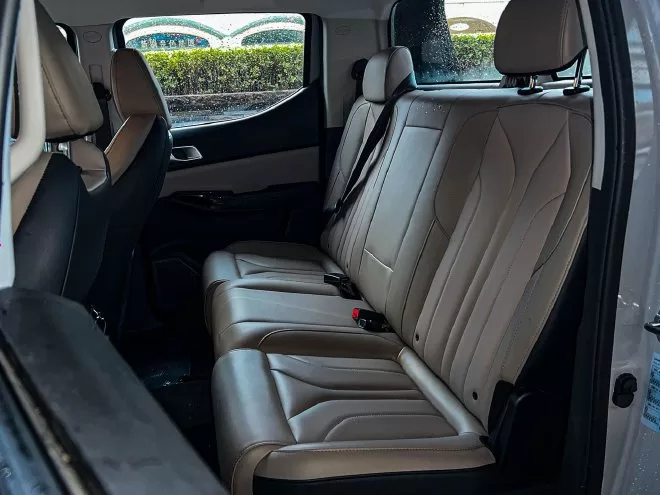
The rear seat back is comfortable, but the cushion is a bit short. The back of the rear seat is connected to the rear windshield and the trunk, and it is quite vertical.
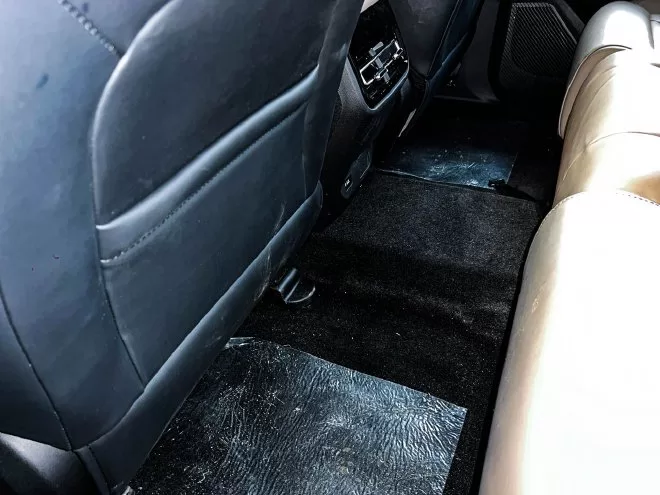
The rear floor is very flat, with a vent and a USB port.
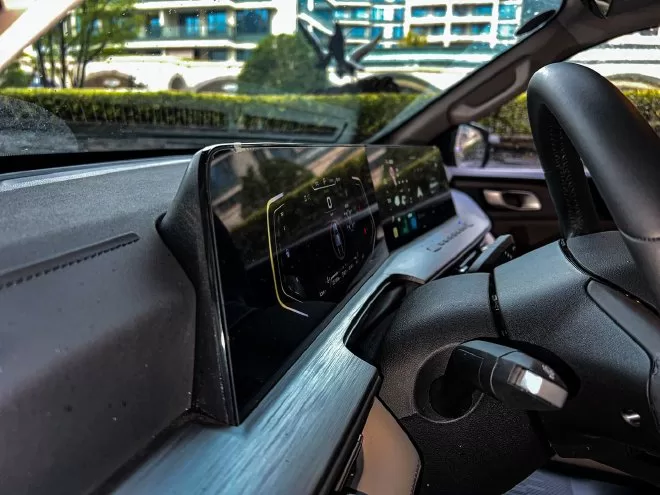
The Changan Hunter presents a passenger SUV-like interior layout, technology configuration, and space utilization. As the world’s first extended-range pickup, it not only has strong core power but also has the ability to interact with mainstream car machines and voice interaction. In the face of the ever-changing competition in the passenger-oriented pickup market, Changan Pickup has taken a different path. With the guidance of the Changan “Shangri-La” plan, it has dropped a heavy “bomb” in the commercial pickup field. With a cockpit of technology like the Hunter, it is enough to have an advantage in the competition in the new pickup market.
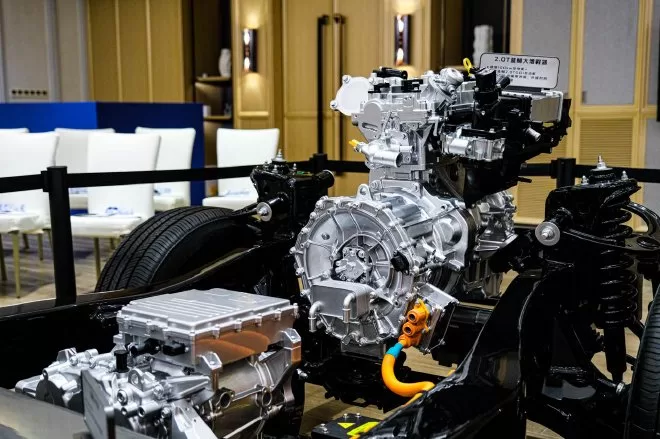
In terms of power, from a technical perspective, the industry consensus is that range extension is a simple technology, but many car companies have greatly developed it, forming a practical technological route that provides users with efficient powertrains, which is actually good technology. In this respect, the Changan Hunter is equipped with a 2.0T Blue Whale range extender, which includes a peak 100kW generator, combined with the Changan Blue Whale 2.0TGDI engine, forming a super range extender, capable of achieving a motor peak torque of 470N·m and a wheel-end torque of 5000N·m.
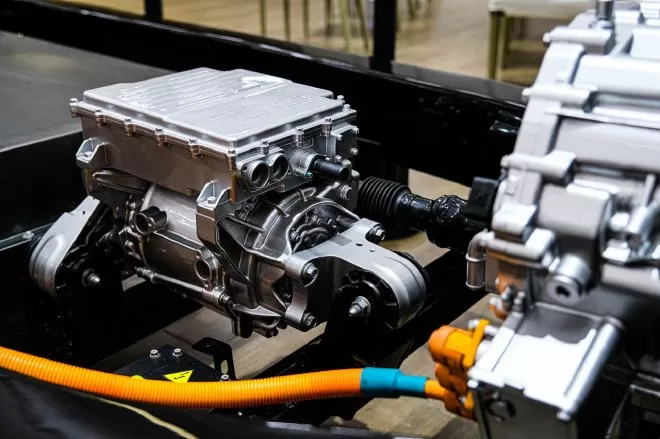
The extended-range engine features a 10:1 high compression ratio and widened camshaft profile, prolonging the intake valve opening duration and improving fuel consumption with late intake valve closing technology. With the innovation of technologies such as high compression ratio and deep Atkinson cycle, it achieves a net power of 140kW. Additionally, it utilizes the self-developed R100G generator by Changan, with a maximum efficiency of 97%.
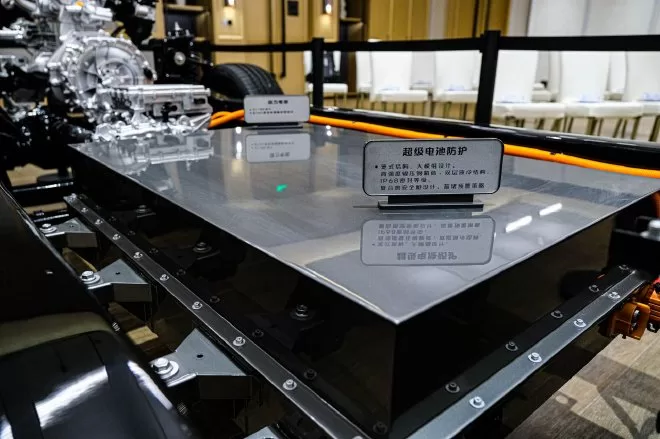
The new car is equipped with a 31.18kW·h battery provided by Guoxuan High-Tech and a standard 70L fuel tank. With a full tank and battery, it can achieve a comprehensive range of 1031km. This range is beyond the reach of traditional fuel-powered pickups and is a result of electrification.
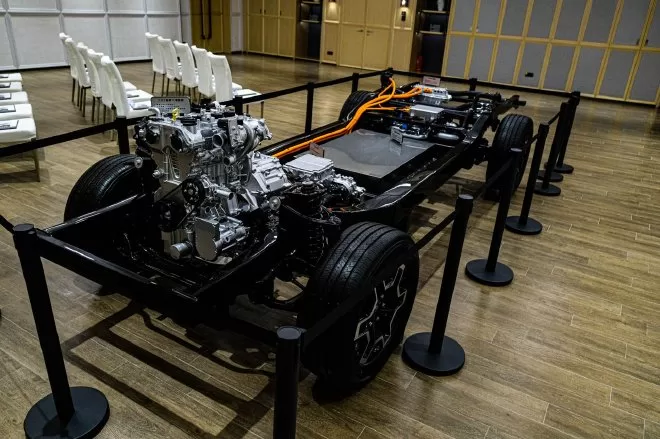
In terms of driving, Changan Hunter is equipped with two drive motors front and rear, with power of 70kW and 130kW respectively, and peak torque reaching 470N·m, forming a decoupled four-wheel drive system. The chassis is equipped with a three-lock structure of front axle lock + rear axle lock + energy lock, and the front and rear axle power can be adaptively distributed according to road conditions. The wheels on both sides of the front axle can also achieve power distribution, achieving a 50:50 torque distribution, and can provide power assistance when one side of the wheels loses grip.
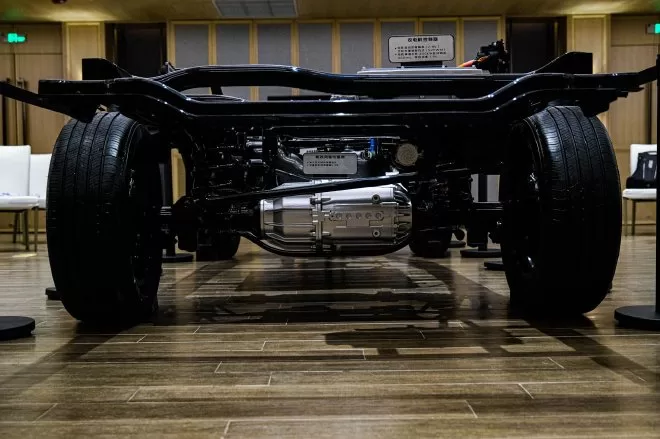
Thanks to the independent dual motor controller algorithm technology used by the Changan Hunter electric drive, adaptive control frequency and space vector modulation can achieve a 400ms start response and a 0-100km/h acceleration time of 7.9 seconds.
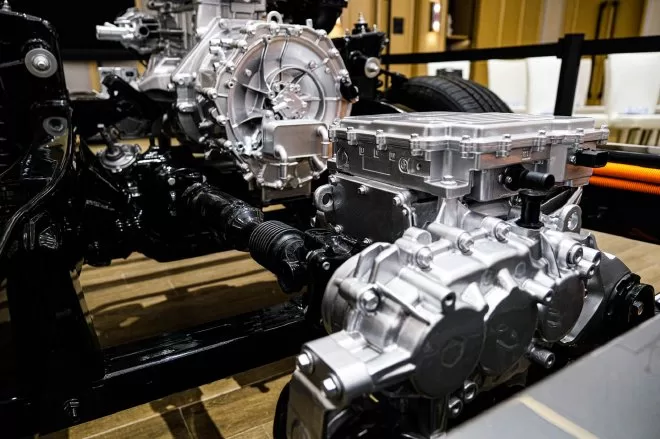
Now let’s talk about the start-up replenishment of the 2.0T Blue Whale range extender. The replenishment power and speed of the intelligent range system are different under different battery power levels. For example, at 1750rpm, the power of the range extender is 30kW, reaching 50kW at 2750rpm, and reaching 70kW at 3750rpm. By applying the replenishment algorithm technology under the super range extender, it can achieve replenishment of less than 8% of the battery power, and the replenishment time is less than 20 minutes; it can achieve dynamic replenishment under high-speed extreme demand, with a maximum charging rate of 1.3C, and 50% of the battery power can be charged in 25 minutes.
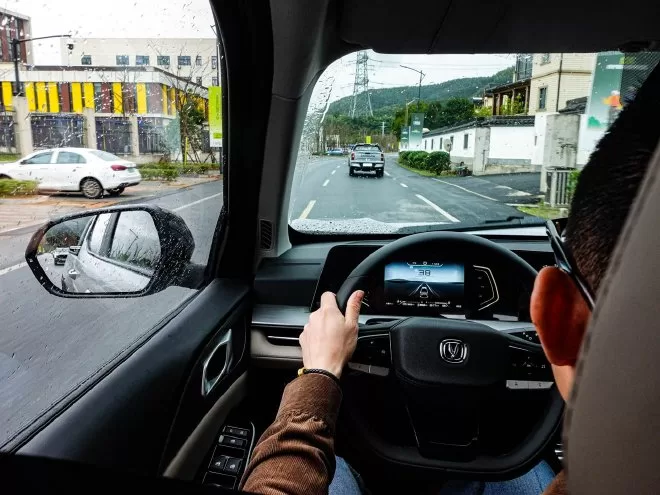
For pickup trucks used in multiple scenarios, the efficiency of the range extender is crucial, solving the problem of not being able to charge during use and reducing range anxiety for users.
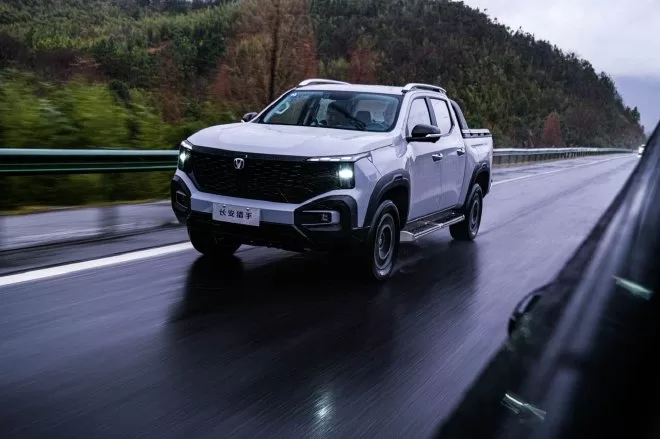
The test drive of the Changan Hunter this time was very diverse, including highways, city roads, and mountain roads. Faced with various road conditions, the overall performance was satisfactory, especially on highways and mountain roads. The electric power of the Changan Hunter is very smooth during startup and low-speed driving. It is difficult to feel that you are driving a commercial pickup truck if you don’t look back at the rear cargo box.
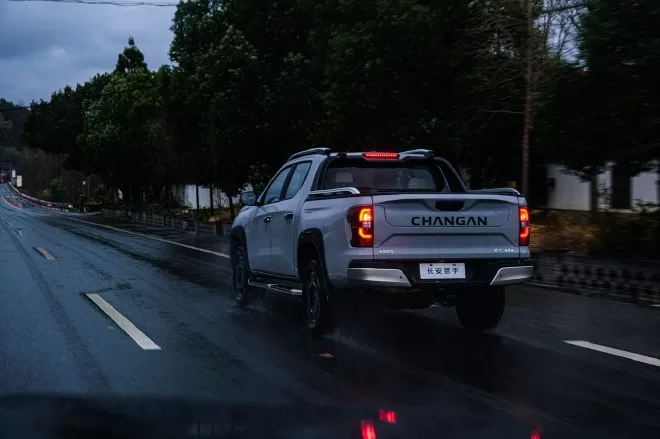
The city road section starts and maintains consistent with low speed and pure electric vehicles. When the power is above 80%, the range extender will not start at all, and electric energy can be used to drive smoothly and lightly, which is the consistent feeling of many media during this test drive.
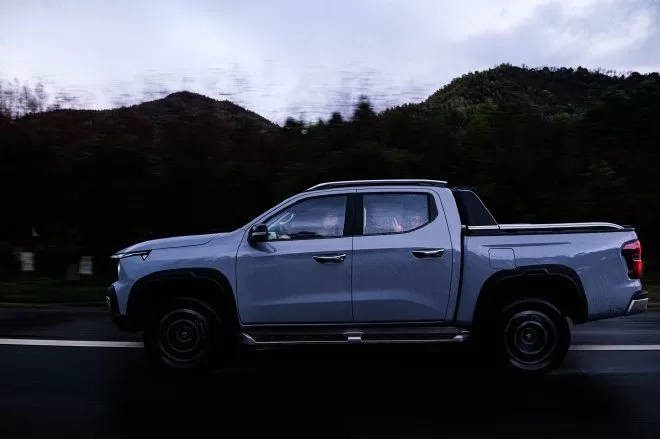
After the vehicle enters the highway, the mid-to-rear acceleration will activate the range extender to continuously charge the battery. The car has three driving modes, as well as a custom driving mode. The difference between ECO and Sport modes is significant, in terms of throttle response, steering wheel damping, and kinetic energy recovery intensity. The throttle in Sport mode is very light, but the steering wheel damping is very high, making it very suitable for stable handling at high speeds.
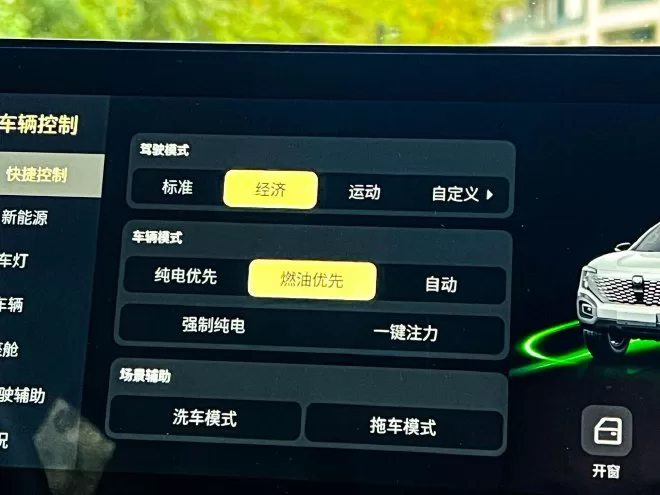
In ECO mode, there is a time delay in the feedback of throttle and power, and the steering wheel is also relatively light. There is almost no kinetic energy recovery, but with careful observation, you can still feel the kinetic energy recovery working. In actual testing, on a 3-kilometer road, through coasting and braking to recover kinetic energy, about 2% of the electricity can be recovered. This is already much better for a pickup truck that has always been known for its fuel consumption.
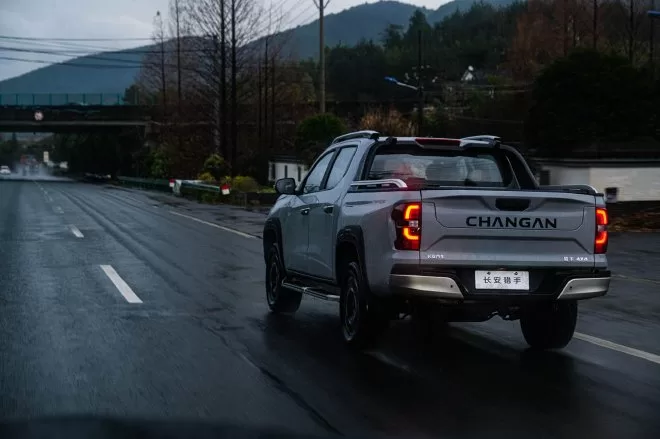
When driving on paved roads with little fluctuation, you can feel the engine speed at around 1500 rpm after the range extender starts. The noise after starting is minimal and does not reach the cabin, but there is still some sound. It may not be as quiet as a passenger car’s NVH, but for a commercial pickup truck, it is already very good. Official data shows that the interior noise level is controlled at 63 decibels per hundred kilometers, and the difference in NVH index before and after the range extender intervention is ≤2 decibels. Just this data alone already surpasses many gasoline and diesel pickup trucks.
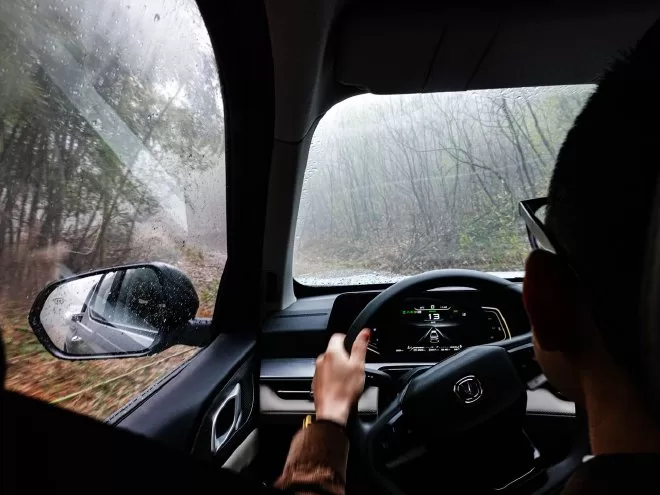
During this test drive, we also experienced the off-road capability of the Changan Hunter. With 4WD and three locks, it offers low-speed 4WD, high-speed 2WD, and adaptive driving modes. In many cases, simply adjusting the gear to AUTO mode will automatically determine the tire grip and power output. The three locks were hardly used on this mountain road.
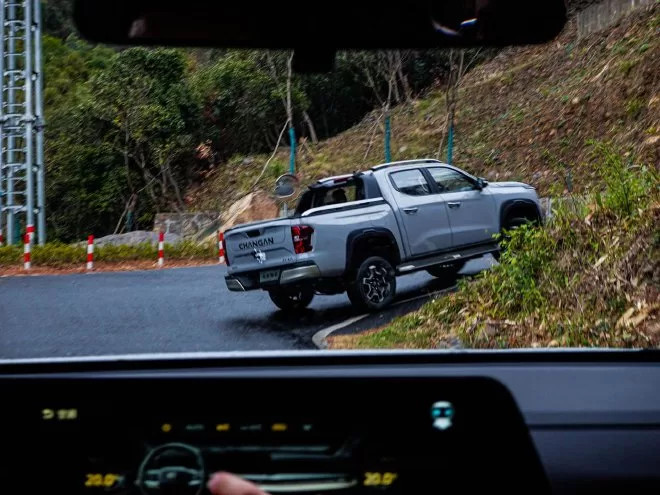
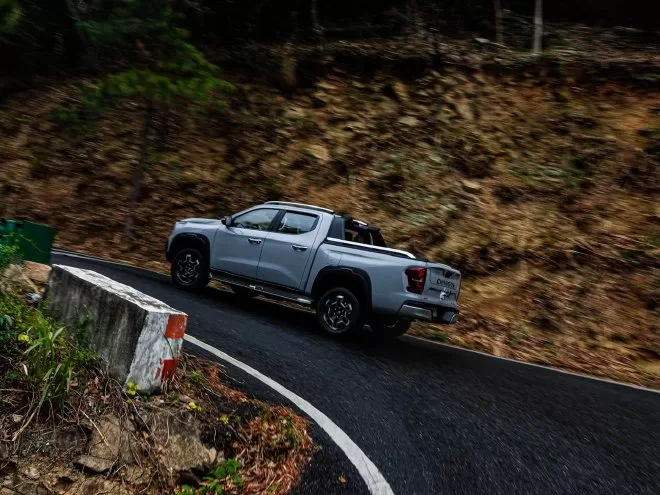
The mountain road we test drove this time had many hairpin turns, and after each turn, there was a straight climb in altitude. For diesel cars with power lag, this kind of road requires inertia to make it easier to go up. As for turbocharged gasoline models, it tests their shifting logic. However, the extended-range four-wheel drive pickup with two drive motors is not afraid of such road conditions at all. It easily passes through the altitude increase after turning. So, for friends who need to shuttle back and forth on mountain roads, power is definitely your safety guarantee for going up and down the mountain. Continuous smooth output, stable four-wheel drive, can only be provided by the extended-range pickup.
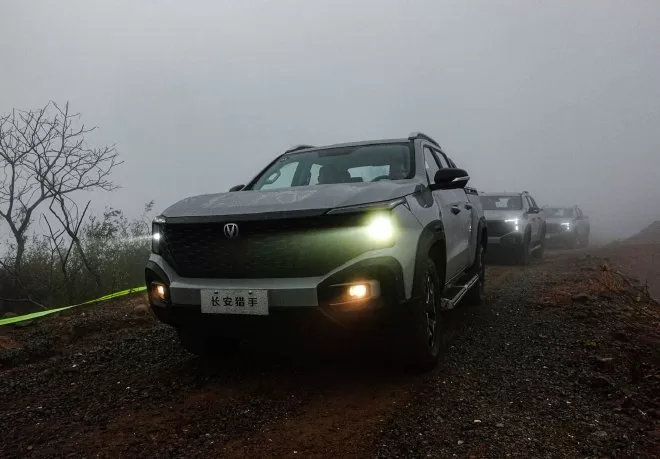
On the other hand, on unpaved mountain roads, the rain-soaked soil, gravel, and uneven potholes test the balance of the four-wheel drive dynamic torque, as well as the impact and durability of the drive motor on uphill and downhill slopes, and the rigidity of the cabin. The Changan Hunter does not have a sunroof, and it still uses a non-load-bearing structure. The beam structure and battery pack are integrated, and the battery pack is positioned between the left and right longitudinal beams of the beam, visibly positioned slightly higher, and almost does not come into contact with the battery pack, this design is called “cage type”. The chassis torsional stiffness is increased by 32% due to the non-load-bearing body structure, fully ensuring the rigidity of the vehicle in extreme road conditions.
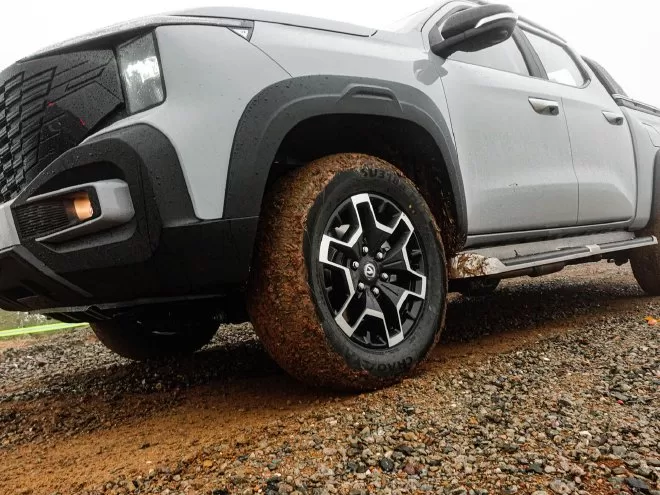
In addition to battery safety, the remote control driving technology is also a major highlight of the vehicle. Its biggest advantage is the decoupling technology of remote control, achieving a maximum deceleration of 0.3g while ensuring the comfort and smoothness of braking. In addition, the Changan Hunter also has towing qualifications, with a towing capacity of 2.5 tons, and comes standard with a standard signal power interface, making it suitable for towing trailers, kayaks, motorcycles, and vehicle rescue. No problem.
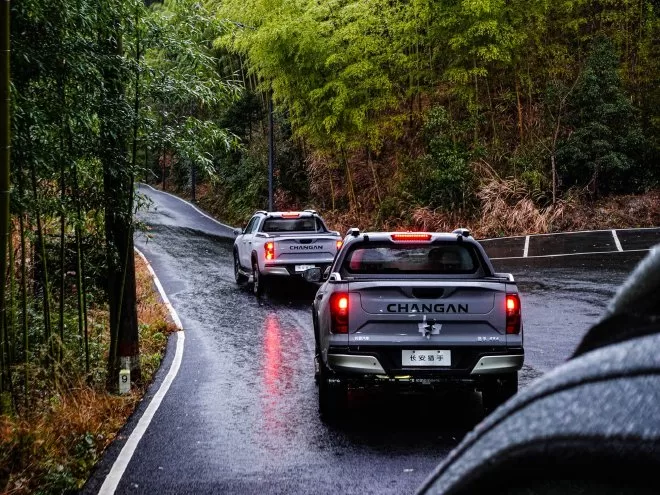
In summary, as the world’s first extended-range pickup truck, the Changan Hunter has rich hardware and software, high integration, and in this test drive process, it was very comprehensive and handy for driving in different scenarios, without feeling any shortcomings or areas where extended-range pickups are not as good as gasoline or diesel pickups.
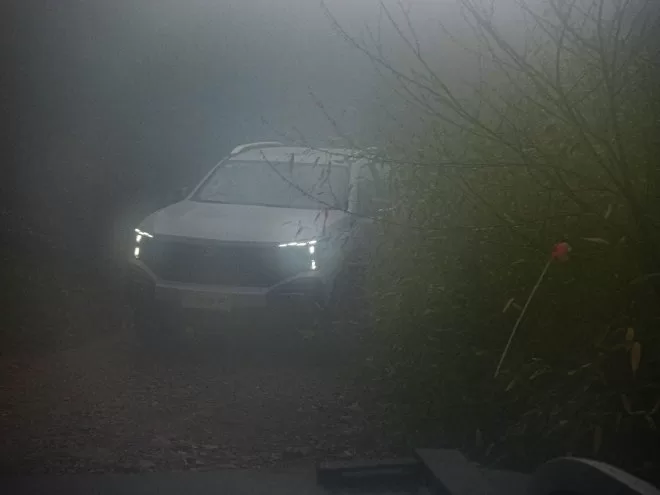
It is a large horsepower passenger car with outstanding intelligence and electric performance. It runs fast on highways, lighter in urban areas, and confident on uphill roads. Its biggest advantage comes from its range extender, which not only ensures charging efficiency but also gives users enough confidence. This confidence comes from Blue Whale Power, which is the cornerstone of Changan Automobile and the fundamental of Changan’s range-extended models. The starting price of this model may be around 140,000-150,000 yuan (21180$). I wonder if bosses who want to buy a pickup truck will consider a range-extended pickup. The car will be launched within the year, and Sina Auto will continue to follow up.